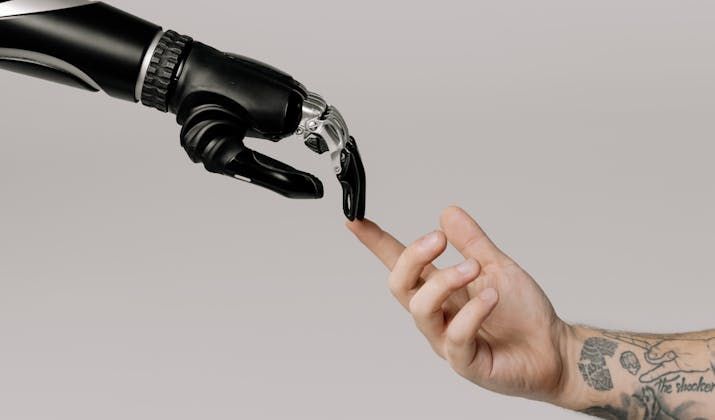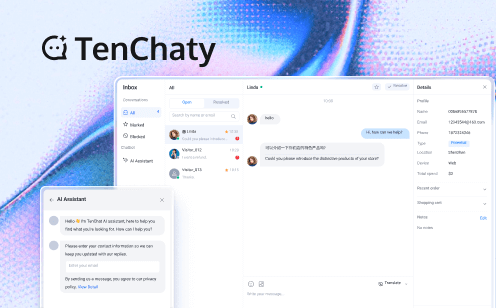Imagine being able to change your voice to sound like anyone you want – from your favorite celebrities to unique characters from games or TV shows – all with just a few clicks. Thanks to AI, voice changers are making this a reality for people everywhere. Whether you're a gamer, content creator, or just want to add a fun twist to your online interactions, AI voice changers have something to offer.
But there's a question a lot of people are asking: when will AI have fully realistic voice changer that can sound just like us, with all the natural tone and emotion? In this post, we'll break down how AI voice changers work, show you some of the best ones out there, and dive into the future potential and challenges of this technology. Make sure you read to the end!

What Are AI Voice Changers and How Do They Work?
AI voice changers are fascinating tools that let you modify your voice in real time or through pre-recorded audio. Whether you want to sound like a cartoon character, an older person, or even a celebrity, these technologies make it possible. But how do they actually work?
At their core, AI voice changers use advanced algorithms and machine learning to analyze and manipulate sound. When you speak into the software, it captures your voice and breaks it down into various components, such as pitch, tone, and speed. The AI then applies changes based on the settings you choose—like making your voice deeper, higher, or completely transforming it into something entirely different.
Modern AI voice changers utilize deep learning models trained on vast datasets of human speech. This training enables them to produce natural-sounding voice modifications that closely mimic human speech patterns. Some advanced tools even allow for voice cloning, where the AI can replicate a specific person's voice with remarkable accuracy.
Benefits of AI Voice Changers
AI voice changers offer a range of advantages that can enhance your communication and creative projects. Here's how they can benefit you:
- Enhance Creativity: AI voice changers allow you to experiment with different voices and tones, adding unique elements to your content. Whether you're a podcaster, video creator, or gamer, these tools can help you craft distinctive characters and narratives.
- Protect Privacy: If you're concerned about privacy, especially during online interactions, AI voice changers can help by disguising your voice. This is particularly useful for maintaining anonymity in public forums or while gaming.
- Improve Accessibility: For individuals with speech impairments, AI voice changers can provide a means to communicate more effectively. By generating clear and natural-sounding speech, these tools can help bridge communication gaps.
- Save on Voiceovers: Creating voiceovers traditionally requires hiring voice actors and scheduling recording sessions. AI voice changers streamline this process, enabling you to generate high-quality voiceovers quickly and cost-effectively.
- Enhance Customer Service: Some companies are even starting to use AI voice changers in customer service. By having a virtual assistant with a warm, friendly voice, businesses can create a more engaging and pleasant experience for customers.

5 Best AI Voice Changers
If you're looking to have some fun with your voice or need a tool for your projects, here are five top AI voice changers worth exploring:
HitPaw
HitPaw Voice Changer is a real-time AI-powered tool that lets you modify your voice effortlessly. It offers a wide range of voice effects, from celebrity imitations like Donald Trump and Taylor Swift to unique character voices like Minions and Mario, making it perfect for gaming, streaming, or content creation.
The user-friendly interface ensures easy navigation, and it integrates seamlessly with popular platforms like Discord, Twitch, and YouTube. Additionally, it provides noise and echo reduction, ensuring clear and high-quality voice output.
Voicemod
Voicemod is a free voice changer software that lets you modify your voice in real-time to sound like different characters with no lag. You can use it when chatting with friends, gaming or streaming. Thankfully, it's easily integrated into other popular platforms like Discord, Twitch, and in-game chats, meaning you can bring your new voice anywhere you hang out online.
You have over 150 voice effects and soundboards, including tools to adjust each one. You can also create and share your own voices with the Voicemod community. Overall, the tool is free to use and works on both Windows and macOS devices.
Synthesys
What better way to create high-quality voiceovers than by using Synthesys's AI voice generator? It's quite affordable and comes with professional features that ensure a seamless experience. You'll get voices modeled after real actors, adding an element of realism to the voices. With this, you're exposed to studio-grade sound without the hassle of hiring talent or booking a recording space.
Also, there's a wide variety of voices to choose from in different accents and languages. You have over 370 voices across 140+ languages, so you can find the perfect match for your brand. Synthesys also offers multilingual voice cloning. This way your voiceovers remain consistent in multiple languages.
Kits
Do you know you can sing like anyone and play any musical instrument with Kits.AI? It allows you to convert your voice recordings into different styles, such as singing or instrument sounds. With a library of royalty-free AI-generated voices, you can experiment with various vocal textures without worrying about licensing issues.
Kits also offers a desktop app that integrates seamlessly with popular Digital Audio Workstations (DAWs), enabling drag-and-drop functionality for efficient workflow. Additionally, Kits provides tools like vocal removal, AI mastering, and key and BPM detection to enhance your audio projects.
Murf
Murf makes creating voiceovers faster and easier with a highly realistic AI voice generator. It achieves this using over 20 languages. So, whether you're preparing training videos, podcasts, or sales pitches, Murf lets you customize and create professional voiceovers for them, taking away the need for costly recording setups. You can adapt voices to any regional accent or language to expand your content's reach, plus the intuitive interface of the tool makes editing and translation easy as pie.
Applications of AI Voice Changers
AI voice changers are becoming popular across various fields, offering creative and practical uses that go far beyond simple voice modulation. Here's a look at some of the most common applications of AI voice changers:
Gaming and Streaming
If you're a gamer or a streamer, you've probably seen AI voice changers in action. They let you add an extra layer of fun to your streams by changing your voice to fit different characters or personas. Whether you want to sound like a villain, a robot, or even add some funny sound effects, AI voice changers bring a lot of personality to online gaming and make streams more entertaining for your viewers.
Content Creation and Animation
AI voice changers are invaluable tools for content creators, especially those working on animations, podcasts, or YouTube videos. They allow you to voice multiple characters without hiring different actors, making it easier (and cheaper) to bring a whole cast to life. Plus, you can use different tones and effects to enhance storytelling, making your content more engaging and professional.
Privacy and Security
If you're someone who values privacy when communicating online, AI voice changers can help you maintain anonymity. This is particularly useful in public forums, live-streamed events, or even during online meetings. You can mask your real voice, making it harder for anyone to identify you based on your speech.
Customer Service and Virtual Assistants
Many businesses are now using AI voice changers to create friendly and consistent voices for customer service bots and virtual assistants. These AI-powered voices make interactions feel more personal and engaging for customers. By using voice changers to adjust tone and add a natural-sounding quality, companies can improve the customer experience and make their virtual assistants feel more human.
If you're a developer interested in adding these advanced AI voice capabilities to your app, Tencent RTC's conversational AI SDK could be a game-changer. This toolkit makes it easy to integrate real-time voice and video features, so you can create highly interactive and personalized user experiences.
Imagine building an educational app where students can chat with a virtual tutor that gives instant, helpful feedback, or a gaming platform where players interact with lifelike character voices. With ultra-low latency, Tencent RTC ensures smooth, uninterrupted conversations, so users stay engaged without frustrating delays.
What's more, Tencent RTC's SDK includes powerful tools like automatic speech recognition (ASR) and text-to-speech (TTS), allowing you to develop applications that understand and respond naturally. You can even tap into sentiment analysis, meaning your app can pick up on user emotions and respond with empathy—perfect for customer service apps where tone matters. Whether you're creating virtual companions, productivity assistants, or interactive social experiences, these features help make conversations feel real and personal.
The best part? Tencent RTC's SDK is flexible and easy to customize. You can adjust voice styles, add custom knowledge bases, and make the experience fit seamlessly with your app's brand and tone. So, if you're looking to build an app that connects with users on a deeper level, Tencent RTC's conversational AI SDK gives you the tools to make it happen.
What Challenges Lie Ahead for AI Voice Technology?
While AI voice technology has come a long way, there are still some big challenges to tackle before we get fully realistic and seamless voice changers. Here are a few key hurdles developers are working to overcome:
Achieving Natural Expression and Emotion
One of the toughest challenges is making AI-generated voices sound truly human, especially when it comes to capturing emotions. Human voices naturally convey feelings like excitement, sadness, or sarcasm, but AI still struggles to do this convincingly. Developers are working on emotion recognition and expression features, but it's a complex process to make sure the voice sounds both realistic and appropriately expressive in real-time conversations.
Handling Accents, Dialects, and Nuances
Our voices are full of unique quirks that vary based on region, culture, and individual speaking style. For AI voice changers to sound completely natural, they need to handle a wide range of accents and dialects. This is challenging because the technology needs vast data and sophisticated algorithms to replicate these subtle differences accurately. Without these nuances, AI voices can sometimes sound flat or overly standardized.
Addressing Ethical and Privacy Concerns
As AI voice technology advances, privacy and ethics are becoming critical considerations. With realistic AI voice changers, there's the potential for misuse, like voice cloning for deception or fraud. Ensuring that this technology is used responsibly and implementing safeguards to prevent misuse are ongoing challenges for developers and policymakers alike.
Conclusion
So, when will AI have fully realistic voice changer? AI voice changers have come a long way. Though we're not quite at the point where they're totally indistinguishable from a real human voice – we're getting close! While there are still challenges like privacy and security to work through, the tech is constantly improving, and before long, you'll likely have access to voice changers that sound just as natural as the real thing. Until then, today's best AI voice changers already offer tons of creative and practical ways to enhance your voice experiences. Whether you're looking to have fun, create content, or just explore what's possible, AI voice changers have a lot to offer right now – and there's so much more to look forward to!
FAQs
Can AI change voice in real-time?
Yes, AI can change a person's voice in real-time. AI voice changers can adjust pitch, tone, and other voice features on the fly. People use these tools for various purposes, including entertainment, content creation, and keeping their identities hidden online.
How do current AI voice changers compare to traditional methods?
Current AI voice changers are generally more advanced than traditional methods. They can modify voices in real-time with higher accuracy, capturing natural tones and nuances, making them sound more realistic. Traditional voice changers rely on pitch shifting and effects, which can sound robotic or unnatural, while AI-based tools use deep learning to mimic different voices or styles more convincingly.
Why are actors so worried about AI?
Actors are concerned about AI because it can replicate their voices, appearances, and performances without consent, potentially leading to unauthorized use of their likenesses. This raises issues of job security, creative control, and fair compensation, as AI-generated content could replace human actors in some roles.
If you have any questions or need assistance online, our support team is always ready to help. Please feel free to Contact us or join us on Telegram or Discord.


